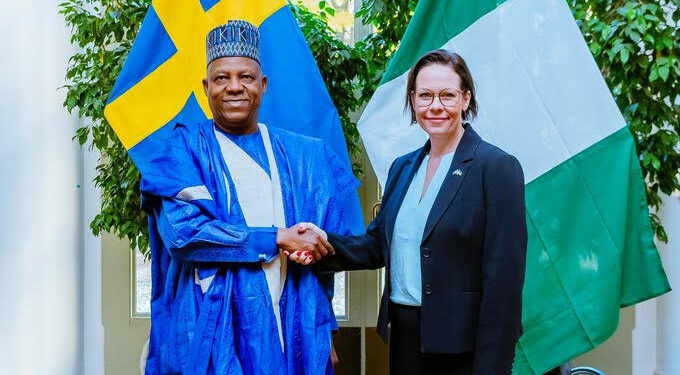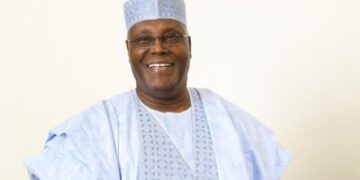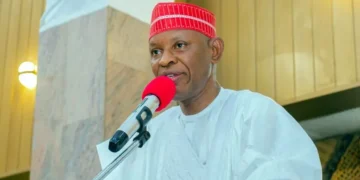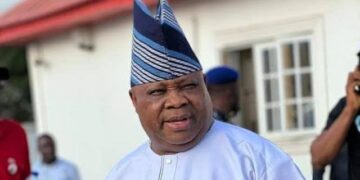During a business meeting with Swedish companies in Stockholm, Sweden, Vice President Shettima made a compelling case for increased investment in Nigeria, as part of his two-day official visit to the Nordic country. His speech centered around the bold economic reforms the Nigerian government has undertaken, aimed at fostering sustainable development and creating a more attractive environment for both domestic and foreign investments.
He emphasized that the Federal Government, under President Bola Ahmed Tinubu’s administration, has implemented crucial reforms, such as unifying exchange rates and removing fuel subsidies, to stabilize the economy and promote growth. Speaking at the Epicenter in Stockholm, the Vice President reiterated that these changes, although challenging, were necessary steps in revamping Nigeria’s financial landscape. He also highlighted the administration’s “Renewed Hope Agenda,” which seeks to enhance the nation’s global competitiveness, especially in sectors critical to economic transformation.

The Vice President further stressed that Nigeria and Sweden share a long-standing history of collaboration, particularly in the fields of trade, technology, and sustainable development. He pointed out that Nigeria has emerged as a nation brimming with opportunities across various sectors, including digital innovation, agriculture, renewable energy, and micro, small, and medium-sized enterprises (MSMEs). Describing Nigeria as “an ambitious nation, bound by the limitless potential of the Fourth Industrial Revolution,” he underscored the country’s forward-looking approach in embracing modern technological advancements to foster growth.
In his remarks, VP Shettima also made a passionate appeal to Swedish investors, outlining the promising business opportunities that exist in Nigeria, particularly in the digital economy, agriculture, and renewable energy sectors. These sectors, he said, are pivotal to addressing some of the most pressing challenges facing the world today, such as food security, climate change, and economic growth. He assured the audience that the Nigerian government has created an investment-friendly climate, paving the way for robust partnerships between Nigeria and Sweden.
He explained, “Under the leadership of His Excellency, President Bola Ahmed Tinubu, the Nigerian government has introduced bold financial reforms, including the unification of exchange rates and the removal of fuel subsidies. Though challenging, these reforms are necessary steps in restructuring the economy for sustainable growth.”
Highlighting the government’s broader economic vision, the Vice President noted that Nigeria’s financial sector reforms, such as the revised Cashless Policy and the Open Banking Framework, are driving innovation and inclusivity in the financial industry. These reforms, he said, are critical in providing access to modern banking services and products that can stimulate growth and enhance financial inclusion for millions of Nigerians.
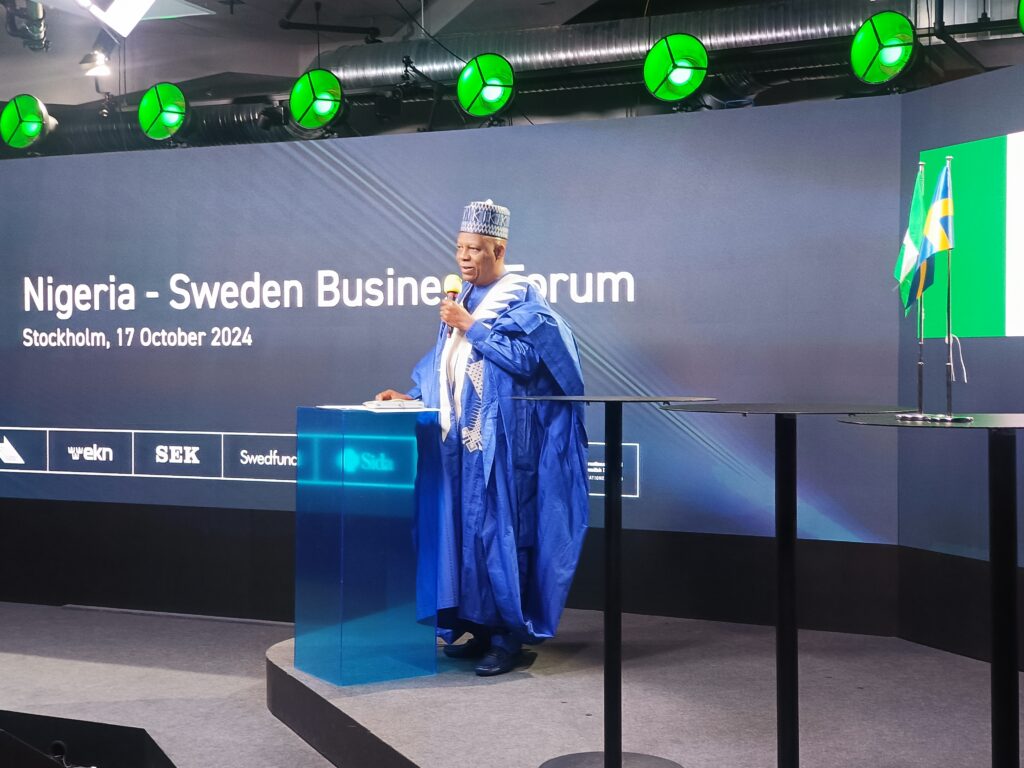
As Nigeria moves toward becoming a global player in key industries, VP Shettima urged Swedish companies to explore the wealth of opportunities that abound in the country. He stated, “Distinguished guests, ladies and gentlemen, there is tremendous potential for collaboration between Nigeria and Sweden across multiple sectors. Whether in finance, renewable energy, digital innovation, agriculture, or education, our partnership holds the promise of immense benefits for both nations. I urge Swedish investors to seize the opportunities in Nigeria and work with us to build a prosperous and sustainable future.”
Reflecting on the positive trends in bilateral trade, VP Shettima highlighted that trade between Nigeria and Sweden increased by 30% in 2022, signaling the potential for even deeper cooperation between the two nations. This momentum, he argued, should encourage further efforts to create a favorable business environment, which would allow for the expansion of goods and services, from digital technologies to specialist sectors.
“This momentum calls us to come together and create a favorable business environment for the expansion of goods and services, from digitalization to access to specialists,” he remarked. He further noted that “Nigeria’s financial sector is one of the most sophisticated in Africa, showing remarkable resilience in recent years.”
He also underscored Nigeria’s demographic strength as the most populous country in Africa, noting that its strategic advantage extends beyond sheer numbers. He pointed to the creativity and knowledge-sharing potential of the youth population, which he described as the driving force behind Nigeria’s dynamic and growing economy. According to him, Nigeria’s true economic engine is its young, innovative population, which is positioning the country as a leader in various global industries, particularly technology and ICT.
The Vice President’s visit to Sweden, aimed at enhancing trade and bilateral relations between the two nations, highlights Nigeria’s ongoing efforts to attract foreign investments, foster partnerships, and secure a future of shared prosperity with its global partners.


